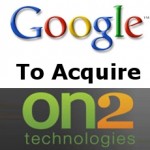 Redmond, Washington — It took eight months of exhaustive consideration since the search alliance that Microsoft and Yahoo settled on after years of flirting is about to get started. The U.S. Department of Justice and European Union last week bestowed their blessings on Microsoft’s search alliance with Yahoo, something they have been waiting for since July, paving the way for the companies to fully implement the agreement, which could help the companies compete with Google.
Redmond, Washington — It took eight months of exhaustive consideration since the search alliance that Microsoft and Yahoo settled on after years of flirting is about to get started. The U.S. Department of Justice and European Union last week bestowed their blessings on Microsoft’s search alliance with Yahoo, something they have been waiting for since July, paving the way for the companies to fully implement the agreement, which could help the companies compete with Google.
With the regulatory blessings, Microsoft and Yahoo said they would commence incorporating the relevant operations in the “coming days,” acting on plans they have been working on since they proposed the deal in July last year.
“Although we are just at the initial stage of this process, we have reached an exciting milestone,” said Microsoft CEO Steve Ballmer, in a statement. “I believe that together, Microsoft and Yahoo will promote more choice, better value and greater innovation to our customers as well as to advertisers and publishers,” said Ballmer.
The most remarkable part of the pact will see Yahoo effectively outsource search on its Web sites to Microsoft’s Bing search engine. Still, Yahoo officials insisted their company isn’t abandoning search for good and will continue to invest in the technology.

“This major alliance means Yahoo can focus even more on our innovative search experience,” said Yahoo CEO Carol Bartz, in a statement.
“Yahoo gets to do what we do best: combine our science and technology with compelling content to create personally relevant online experiences to our users and customers,” said Bartz.
A smaller cumulated market share in Europe had given the companies confidence of winning European Union approval, but the blessing of the Obama administration had been less certain. Regulators in the US Department of Justice have promised a tougher antitrust line than the preceding regime.
Once the changeover is fully accomplished, the companies will offer a combined search experience the companies expect will breed innovation and better volume and efficiency for advertisers. They also expect it to provide better earning possibilities for web publishers with a larger pool of search queries.
“Nobody is going to see any immediate changes. The question is whether or not this will somehow challenge, damage or threaten Google,” said Greg Sterling, principal analyst at Sterling Market Intelligence. “The answer in the near term is no, and we will have to wait and see in the long term.”
The new partnership will enable Microsoft’s Bing search engine to power Yahoo’s search results for a slice of ad revenue.
Some of the biggest advertising customers, including WPP, Omnicom and Publicis, reasoned in favor of the pact, while Google stood on the sidelines.
EU competition authorities said that their one-month investigation has indicated that scale was critical to search-ad competition and that Google had 90 per cent of the European market. Justice officials had no immediate comment.
The alliance, announced last summer, necessitates Microsoft’s Bing technology to response to queries on all of Yahoo’s Web properties, while Yahoo assumes broad sales responsibilities for its own, and Microsoft’s, Internet platforms.
The measure is aimed at cutting costs and raising revenues for both companies as they battle to gain market share against Google, which contains an estimated 70 percent of the U.S. share of search, the source of billions of dollars from tiny text ads.
Microsoft’s AdCenter software will serve as a self-service search advertising tool for both companies.
Although advertisers might not be shifted to the new system before the end-of-year holiday season, Yahoo conceded, and the massive integration effort might last into 2012.
“What I find interesting here is that if we had a market that was more proportionately distributed, this deal might not have been approved,” Sterling said. “It is because Google is so dominant that regulators would allow this. There are now fewer competitors because Yahoo and Bing are based on the same back end, but this combined effort is needed in order to combat Google.”
Yahoo has signaled it expects the arrangement to add $500 million to annual operating income and $275 million to cash flow while cutting capital expenses by $200 million.


